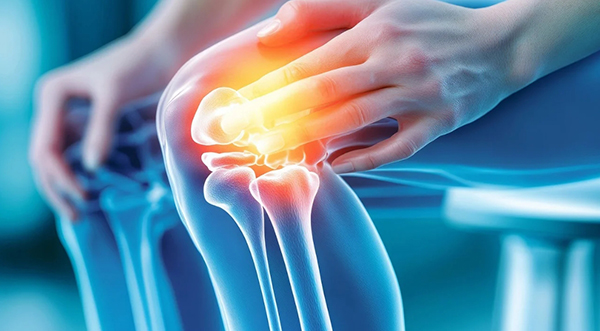What is a bone density test? As the name suggests, a bone density exam is a test of bone density, defined as a way for doctors to check bone strength. In daily life, everyone must go through the stage of birth, old age, disease and death, and for many elderly people, with the growth of age, the density of bones will slowly decline, and the reduction of bone density means that bones become thin, loose and brittle, with the passage of time, loose bones are very easy to break, sometimes a normal fall, General people have nothing, there is some pain, but for people with loose bones, that is, patients with osteoporosis, it is not just a pain so simple, but may appear bone fracture, will seriously affect the physical and mental health of patients, affecting their normal life.
So, what good is a bone density test?
Bone mineral density examination is very useful, but not everyone needs to have this examination, generally in the following cases, doctors will recommend patients to have bone mineral density examination: (1) after the treatment of osteoporosis to check whether the treatment is effective; (2) When determining whether the patient is at risk for osteoporosis; (3) To determine whether the patient has bone loss or osteoporosis. In addition, if the patient himself requests, such as some non-high-risk groups want to check, as long as there is no taboo, the general doctor will arrange for them to check, so that they can feel at ease.
Bone mineral density examination is generally suitable for which population inspection?
First, there are the children. For children with pediatric diseases or nutritional deficiencies, in the course of treatment, it is very necessary to take necessary examinations for etiological investigation in order to conduct etiological analysis and treatment observation. The nutritional deficiency mainly includes calcium deficiency, vitamin D deficiency, vitamin K deficiency, zinc deficiency, vitamin C deficiency, precocious puberty, delayed sexual development, lead, cadmium and VD poisoning, and growth hormone deficiency. The existence of these diseases, as well as the children themselves in an unhealthy state, may cause bone mineral deficiency or abnormal development of bone mineral density. Therefore, with the help of bone mineral density examination, these diseases can be effectively investigated and the targeted and effective clinical treatment can be improved.
Secondly, people with osteoporosis. Osteoporosis, as a common bone degenerative disease, occurs frequently in the middle and old age groups. The occurrence of osteoporosis, in addition to calcium deficiency, genetic and other factors, but also related to endocrine changes. Clinically, the occurrence of osteoporosis will lead to fracture, bone and joint pain in patients, such as thoracolumbar vertebra deformation, disc disease, cervical spondylosis, vertebral body fracture, limb joint and bone pain, lumbar spine, femoral neck, radius fracture, etc. Therefore, in order to better treat osteoporosis patients and improve the pertinence and effectiveness of clinical treatment, bone mineral density examination is very necessary.
Third, middle-aged and elderly people. Men over the age of 50, women after menopause, and people with lower back pain or leg pain should have a bone density test. For middle-aged and elderly people, bone mineral density examination at least once a year is an important guarantee for effective preventive measures for orthopedic diseases such as osteoporosis, which can prevent bone and joint diseases and fractures, and can also slow down the development of osteoporosis patients.
Finally, there are patients who have an impact on bone mineral metabolism. Some patients with metabolic diseases, such as renal failure, diabetes, chronic liver disease, etc., and some patients who take drugs that may affect bone mineral metabolism, such as glucocorticoids, anti-epileptic drugs, heparin, etc., these two types of patients need regular bone mineral density examination, the purpose is to judge the patient's condition according to the examination results. So as to improve the effect of clinical treatment, improve the pertinence and effectiveness of treatment.
In addition to the above groups of people, the normal population also needs to undergo regular bone mineral density examination in daily life to grasp and dynamically observe the changes in their own bone mineral density, so as to prevent related orthopedic diseases and reduce the occurrence of complications. Among them, dual-energy X-ray bone mineral density examination instrument has the advantages of convenient detection and no trauma, and people who need bone mineral density examination can consider it.
Men who smoke and drink alcohol for a long time and people who lose weight quickly should also pay attention to bone density examination in daily life. This is because men who smoke and drink alcohol for a long time are prone to numbness, love cramps, fatigue, sweating, fatigue, aches and pains all over the body; People who lose weight rapidly, due to their own lack of fat loss knowledge, improper weight loss habits, will cause their own mental burnout, nausea, anorexia, back pain, limb weakness and other symptoms. The long-term existence of these symptoms will lead to a large amount of bone mineral loss in the body, greatly reduce bone mineral density, and easily lead to abnormal bone mineral density and bone mineral deficiency. Therefore, it is necessary to regularly receive bone density examination, timely detection and timely treatment to avoid further development of the disease.
Post time: Nov-08-2024


2.jpg)